CAMP Pizza April Edition
Date: Tuesday, April 6th, 2021
Time: 09:30 - 13:00
Virtual Meeting: via
Zoom (login password on invitation flyer).
Ogarnizers: Francesca De Benetti, Mahsa Ghorbani, Anees Kazi.
About
The following CAMPPizza will take place on April 6th from 09:30-13:00. It will be held purely virtual over Zoom. We are pleased to announce our main speakers, Prof. Seong Tae Kim (Kyung Hee University, KOR), Prof. Mingchuan Zhou (Zhejiang University, CHN); Prof. Daniel Roth (Friedrich-Alexander Universität Erlangen, Nürnberg), Dr. Athanasios Karamalis (MESASIGHT
GmbH? , Munich), Dr. Tingying Peng (Helmholtz AI , Munich), Dr. Shadi Albarqouni (Helmholtz AI , Munich), and welcome our new members Baochang Zhang, Francesca De Benetti, Hao Yu , Lennart Bastian, Pengyuan Wang and Shervin Dehghani.
The schedule
| From | To | Topic | Speaker |
|---|
| 09:30 | 10:00 | Welcome | Prof. Dr. Nassir Navab |
| 10:00 | 10:20 | Towards Augmented Intelligence | Prof. Seong Tae Kim |
| 10:20 | 10:40 | An interesting journey with robotics in medical and agricultural scenario | Prof. Mingchuan Zhou |
| 10:50 | 11:10 | A Reflection and an Outlook | Prof. Daniel Roth |
| 11:10 | 11:30 | Jumping into the cold waters of business-oriented innovation with deep learning | Dr. Athanasios Karamalis |
| 11:40 | 12:00 | Disentangling biological signal from experiment noise for microscopy images | Dr. Tingying Peng |
| 12:00 | 12:20 | Towards Deep Federated Learning in Healthcare | Dr. Shadi Albarqouni |
| 12:20 | 12:50 | Newcomers | Baochang Zhang, Francesca De Benetti, Hao Yu, Lennart Bastian, Pengyuan Wang, Shervin Dehghani |
| 12:50 | 13:00 | Closing | Prof. Dr. Nassir Navab |
About the speakers
Prof. Seong Tae Kim: Towards Augmented Intelligence
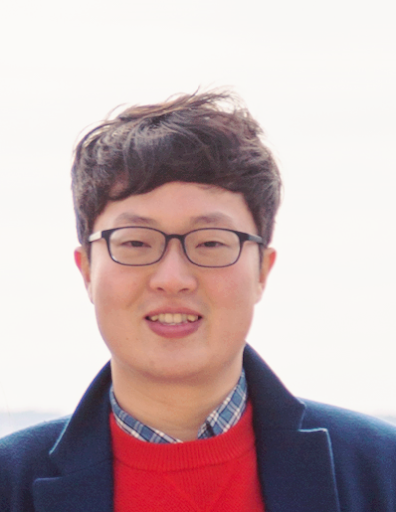
|
- Biography: Prof. Seong Tae Kim is an Assistant Professor of Computer Science and Engineering and leading Augmented Intelligence Lab. at Kyung Hee University, South Korea. Prior to joining Kyung Hee University, he was a senior research scientist in Chair for Computer Aided Medical Procedures at Technical University of Munich, Germany. He completed his Ph.D. at KAIST (Korea Advanced Institute of Science and Technology), South Korea, in 2019. In 2015, he was a visiting researcher at University of Toronto, Canada. His research interests include deep learning, explainability/interpretability of deep neural networks, and spatio-temporal learning. In particular, he is interested in medical applications from diagnosis to surgery.
|
- Abstract: In this talk, Prof. Seong Tae Kim will introduce his experience as a senior research scientist in CAMP chair at Technical University of Munich where he led a couple of research projects regarding spatio-temporal learning and interpretable deep learning. Also, he will introduce his research vision of ‘Human-centered AI’ as a director of the Augmented Intelligence Laboratory at Kyung Hee University.
|
Prof. Mingchuan Zhou: An interesting journey with robotics in medical and agricultural scenario
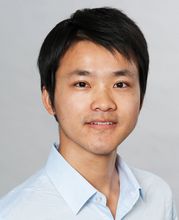
|
- Biography: Dr. Mingchuan Zhou is currently an Assistant Professor at Zhejiang University in the College of Biosystems Engineering and Food Science. He was a joint postdoc at the Technical University of Munich IBMI and CAMP from 2019 to 2021. He obtained his Ph.D. degree from TUM in Robotics in 2020 and was a visiting scholar in LCSR at JHU, USA during 2019. He published more than 20 papers in high-quality robotics journals and conferences in TIE, RAL, ICRA, and IROS. He won the third prize in the Chinese International + competition, Nvidia GPU grant, IEEE ROBIO best paper finalist, and twice of Chinese national scholarship. His research interests are mainly on Agriculture Robotics, Medical Robotics, Robot-assisted Micro-manipulation, Robot Vision, and Deep Learning.
|
- Abstract: I will introduce the interesting experience in CAMP and the valuable knowledge I obtained during my study in Germany. From eye surgical robotics with Dr. Ali M. Nasseri to Prof. Navab for US robotics, all these unique experience brings me lots of ability in research and international cooperation. Afterward, l will briefly introduce my research plan in Zhejiang University from the research interest point of the institute and myself, which is the automation in plant factories and robot-assisted micromanipulation. I will also introduce the university and college I am currently working in.
|
Prof. Daniel Roth: A Reflection and an Outlook

|
- Biography: Prof. Daniel Roth graduated in Media- and Imaging Technology from the University of Applied Sciences in Cologne and received his doctoral degree in Computer Science in 2019 from the University of Würzburg. He worked as senior research scientist at CAMP chair (Technical University of Munich) His main research interests are virtual- and augmented reality technologies for physical and mental health applications, computer aided interventions and human-computer interaction.
|
|
|
Dr. Athanasios Karamalis: Jumping into the cold waters of business-oriented innovation with deep learning
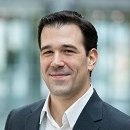
|
- Biography: Dr. Karamalis earned his doctoral degree at CAMP (Technical University of Munich) in 2013. In his time with academia, he worked in medical image analysis for EU and industry-funded projects with a strong focus on ultrasound imaging. He later joined Rohde & Schwarz GmbH? & Co. KG as a development engineer for millimeter-wave security scanners, before becoming the director for imaging products software. For over five years he headed the software development and in particular the development of detection algorithms, bringing machine learning and deep learning from the lab to worldwide use with Rohde & Schwarz millimeter-wave security scanners. In his role, he had the pleasure of working with many governmental authorities and some of the largest airports around the globe. In October 2020 he founded the startup MESASIGHT GmbH? in Munich and continues to follow his passion for bringing together talented people to build the image analysis solutions of tomorrow.
|
- Abstract: This talk will provide some practical insights for moving on from research in academia to delivering working deep learning image analysis projects in the industry. It will discuss project management aspects and the challenges of fulfilling the expectations of customers as well as internal stakeholders. Deep learning projects are quite different compared to other software development projects. Agile and rapid prototyping development is commonplace, but even in such environments the nature of deep learning, I.e., data requirements and iterative process to gain insights and build models, brings considerable risk and uncertainty into projects. Those need to be identified early on and addressed, as well as communicated clearly with stakeholders. The goal of the talk is to provide you with a few hints and tips to tackle deep learning projects when moving from academia to non-deep learning-focused business environments.
|
Dr. Dr. Tingying Peng: Disentangling biological signal from experiment noise for microscopy images
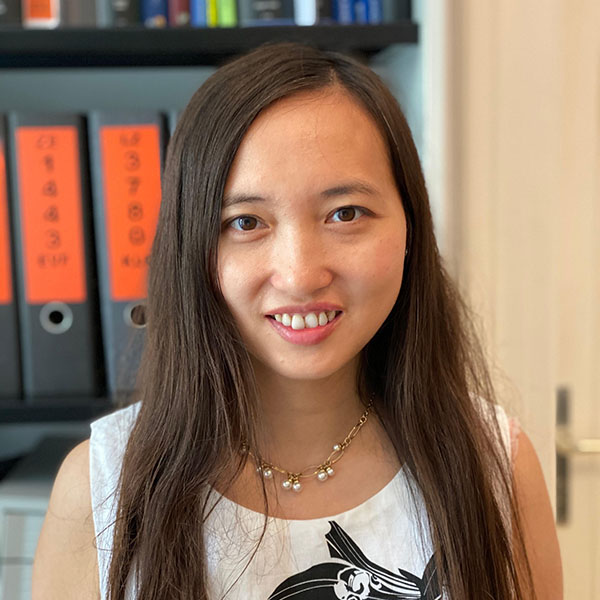
|
- Biography: Dr. Tingying Peng leads a young investigator research group, AI FOR MICROSCOPY AND COMPUTATIONAL PATHOLOGY, at Helmholtz AI. She received her B.Sc in Electronic Engineering and Applied Mathematics from Peking University in China, and her PhD? in Biomedical Engineering from Oxford University in UK, working on developing novel signal processing methods for the analysis of cerebral blood flow and metabolism. Since 2013, Dr Peng joined CAMP Chair (Technical University of Munich) as a Humboldt research fellow. Dr Peng’s research interest focuses on biomedial image denoising, segmentation, registration and machine learning. She has publications in top journals and conferences in medical imaging fields such as Nature Communications, IEEE transactions in Medical Imaging (TMI), IEEE transactions in Biomedical Engineering (TBME), MICCAI and ICCV.
|
- Abstract: One of the main challenges for applying AI to biological microscopy data is that most microscopy images that even the most careful replicates of a process will not look identical. For example, the colour appearance of a histological image slide is not entirely determined by tissue morphology, but rather affected by nonbiological experimental variations such as intrinsic variations in staining chemicals, method of slide preparation, specifications of the imaging device, and type of postprocessing software. In this presentation, we will present a few methods that we developed in our research group to over these batch effects and to disentangle biological signal from experimental noise.
|
Dr. Shadi Albarqouni: Towards Deep Federated Learning in Healthcare
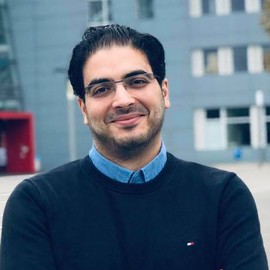
|
- Biography: Shadi Albarqouni is AI Young Investigator Group Leader at Helmholtz AI and TUM Junior Fellow at TU Munich. He received his B.Sc. and M.Sc. in Electrical Engineering from the IU Gaza (Palestine). In 2013 he started his Ph.D. at CAMP chair (Technical University of Munich) during which he focused on developing machine learning algorithms to handle noisy labels, coming from crowdsourcing, in medical imaging. Albarqouni received his Ph.D. in Computer Science with summa cum laude in 2017. Since then, he worked as a Senior Research Scientist & Team Lead at TUM with an emphasis on developing deep learning methods for medical applications. He worked as Visiting Scientist at ETH Zürich (Switzerland) and at Imperial College London (United Kingdom). Albarqouni has around 100 peer-reviewed publications in both Medical Imaging Computing and Computer Vision published in high impact journals and top-tier conferences. His current research interests include Interpretable ML, Robustness, Uncertainty, and recently Federated Learning. He is also interested in Entrepreneurship and Startups for Innovative Medical Solutions.
|
|
|






